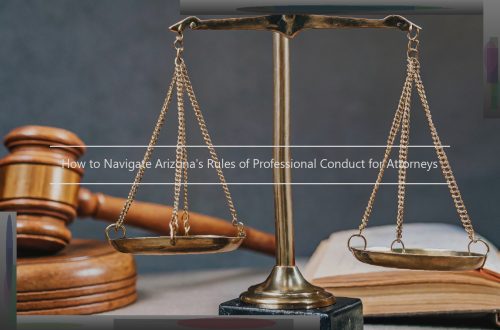
The Legal Technologist Rises: Shifting the Legal Landscape
Who is a Legal Technologist?
Tracing a substratum of visionary legal and IT professionals, the legal technologist in 2015 is a modern breed at the intersection of legal and technology that was born in the past few years out of the confluence of technology, legal process outsourcing, globalisation and traditional legal practice. By 2020 this specialist may well become an integral part of many law firms and legal departments, bringing new collaborative value and actively building rich technology-enabled relationships between lawyers, corporate clients and other participants in the legal ecosystem.
So what is a legal technologist? Without resort to recourse first to Black’s Law Dictionary (and there is nothing there on "legal technologist" at all), it is a new title borne by a professional, who is equally comfortable with lawyers, CIOs and CTOs, CTOs, CTOs, CPOs and CDOs, as well as IT heads, CIOs, system designers and IT practitioners . A legal technologist works with lawyers, the technical components of their cases, and a range of legal technology, and takes responsibility for designing, developing and devising technological solutions that would be appropriate to a particular legal activity. The legal practice, or the legal department, or joint enterprise partners in a particular matter, get the benefit of the combined efforts of a lawyer and a technology professional, but in a more cost-effective way than an ordinary law firm can do.
Legal technologists have a variety of backgrounds. Most are lawyers but some are not. All legal technologists are adept in both the use of technology and the development of technology. They are flexible thinkers who are interested in addressing challenges and opportunities with an open mindset, and go about finding solutions in an analytical manner taking into account the impact of technology in a broad and deep way. Legal technologists will typically work on the development and implementation of technologies for use in the resolution of ongoing cases, and the development and deployment of bespoke systems to mesh into the overall processes of legal delivery.
Legal Technologist Skills
A legal technologist must possess a well-rounded collection of skills that bridges the gap between legal professionals and technology experts. Key competencies that are essential to this role include in-depth knowledge of legal systems and procedures, strong technical abilities, and analytical problem-solving skills. First and foremost, legal technologists must have a solid understanding of the legal system they work within. This includes a grasp of fundamental legal principles, as well as familiarity with various legal fields such as litigation, corporate law, intellectual property, and more. This knowledge not only enables them to customize technological solutions to address specific legal issues but also allows them to liaise effectively between legal professionals and technology developers. Proficiency in technology is, of course, a given. However, this doesn’t just mean having expertise in existing tools and platforms. Legal technologists must also be adept at evaluating new technologies, understanding their potential applications, and keeping up with the rapid pace of innovation in both the legal and technology sectors. This requires a continuous learning approach and an openness to experimenting with new systems and tools. Analytical problem-solving abilities are also critical. In many cases, legal technologists are called upon to identify the root cause of issues that go beyond technology. This involves being able to think critically and design solutions that are both effective and efficient. In addition, problem-solving must be undertaken in collaboration with stakeholders across various departments, which means that legal technologists should have strong communication and interpersonal skills.
The Effect of Legal Technologists on Law Firms
In the modern legal landscape, attorneys are facing mounting pressure from clients to justify their fees and provide greater returns on investment. Firms now view cost-effectiveness and efficiency as the cornerstones of every matter. As this demand continues to evolve, legal technologists, backed by a growing number of innovative companies, have stepped in to fill the gap by streamlining processes and providing lawyers with technological solutions that improve client service while lowering costs.
The presence of data in legal matters increases as employees in firms and corporate legal departments communicate via smart devices, cloud applications, email and enterprise software in all aspects of their work. When you add the expense of processing the ever-growing amount of data, it’s clear that lawyers spend a great deal of their time managing information rather than actually practicing law. Legal technologists are leveraging this information through more affordable and efficient processes that help disrupt and transform the traditional legal services model.
Data-based technologies can enhance the productivity of attorneys and staff, reducing the hours spent and the costs incurred for even the most complex litigation. This allows firms to respond to global legal departments’ demand for lower fees (increasingly billed at fixed prices) while also bypassing the need to increase overhead. By helping firms work faster and more efficiently, legal technologists improve the bottom line in a way that was not possible several years ago.
By hiring more legal technologists, laws firms and corporate departments can offer a larger volume of high-quality at a lower price to clients. Legal technologists ease the burden on attorneys by taking over tasks such as document review, due diligence, eDiscovery and expert witness management. With a full suite of services, legal technologists are carving out a new niche that blends law and technology, while saving money for attorneys and clients alike.
Career Opportunities for Legal Technologists
The surge in interest around legal technology has spawned a host of new career opportunities for both technologists and lawyers. These roles transcend the traditional confines of law firms and corporate legal departments to include technology companies, AI labs, industry organizations, and more. They require a mix of legal expertise, IT skills, and a willingness to train others in the growing adoption of technology. The tech-savvy lawyer will find themselves in demand across a broad swath of organizations. In-house and law firm employment opportunities range from e-discovery specialists, contract managers, project managers, data scientists, research librarians, and other roles with a focus on technology. These positions have become increasingly abundant as law firms look to improve their efficiencies and add value to clients through the use of technology, and as corporate legal departments seek efficiencies to reduce outside counsel expenditures . The role of the legal technology consultant can include advising on the flow of information, building continuous training tasks via mobile application, drafting of high volume contracts, translating multilingual documents, and many more solutions to the ever-increasing demand for 24/7 service. New roles in the emerging technology space are being created to assist lawyers in the implementation of AI applications and expert systems designed to replace hourly work with automated processes. For those with a technology background, there are significant opportunities at technology companies producing software for the legal market. Legal project managers, e-discovery professionals and training coordinators are continually being added to the teams developing and implementing these technology solutions. It is a varied and rewarding career choice for those with a technical aptitude. Given the multitude of opportunities, there are many career paths for those with an interest in legal technology. Lawyers will find opportunities in most areas of the legal tech space, while those from other industries will have many ways of leveraging their backgrounds in the legal sector.
Implications for Legal Technologists
Despite the value and clear demand for their services, legal technologists face a number of obstacles in the course of their work. Common issues include resistance from traditionalists within law firms still holding on to the belief that the practice of law is only for the most qualified individuals. When confronted with the prospect of having their employees replaced by robots or outsourced to offshore service providers, their rigid ideologies come into play. When they fear a loss of control and decreased revenues, the unfortunate and often shortsighted solution is to push back against the changing conditions of the demand for services. In addition, technology changes so quickly that keeping pace can prove impossible. Technology vendors are constantly introducing new products that are supposed to save time and make practices more profitable. Some of them represent the Holy Grail of efficiency and others are just a flash in the pan that will fizzle out and die. Legal technologists must not only keep up with the pace but also learn how to discern between the two types of innovations. Finally, technological advances in the industry clash with a relatively more archaic approach to cybersecurity. Resistance to cloud computing and other data security enhancements generates ongoing risk. Given the choice between efficiency and profits on the one hand and security and decreased profits on the other, some firms will opt for tried-and-true approaches that in many cases expose them to increasing exposure and risk of liability. Despite these issues, an increasing number of legal technologists are finding work and their effectiveness and importance will continue to grow as the industry evolves and transforms.
Legal Technologist Trends
As technological advancements continue to revolutionize the legal industry, those within the sector must be prepared to embrace these changes in order to stay ahead. The emergence of artificial intelligence, blockchain technology, and legal analytics are just a few of the tools that are expected to dominate the landscape of legal technologists. Artificial intelligence is one of the most promising career opportunities for the next generation of legal technologists. With most large companies already adopting AI technologies, this trend is expected to revolutionize the way in which companies evaluate and apply technology solutions to their legal needs. AI is already used for tasks such as e-discovery, contract review, and due diligence, and according to Deloitte, about 100,000 legal jobs have disappeared over the past 10 years as a result of automation. Blockchain technology is another area offering a promising future for legal technologists. The global spending rate on this technology is expected to reach $11 . 7 billion by 2022, and law firms are beginning to offer Blockchain-as-a-Service (BaaS) to clients. Along with Blockchain, firms are increasingly turning to document automation technology (DocAutomation) and matter management software to help them become more efficient, reduce costs, and standardize their processes. Matter management is expected to exceed $900 million in revenue by 2022. Finally, legal analytics presents opportunities for legal technologists to shape corporate practices. Legal analytics relies on data, statistics, and predictive modeling to determine the success of specific strategies and recommend the best course of action for solving legal matters. Online research tools are also expected to continue to increase in popularity, with 81 percent of lawyers believing that such tools are expected to become widespread in the next five years. The importance of this technology is evidenced by the fact that investments in legal startups in 2018 are expected to reach over $1 billion.




